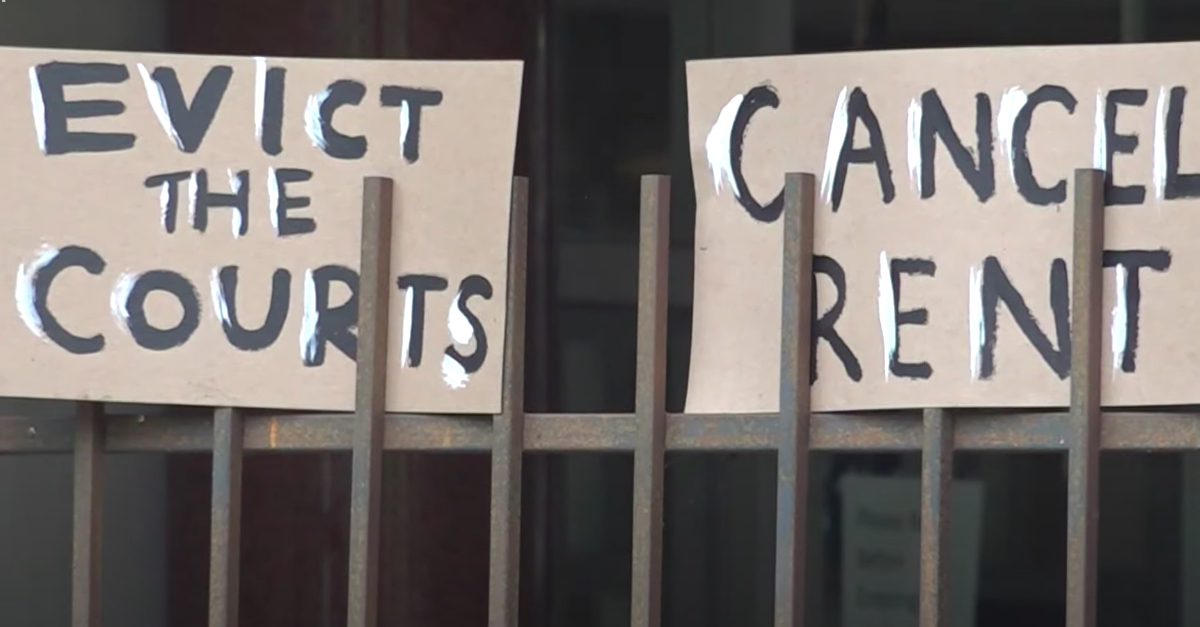
Several law professors criticized the ruling of a Texas federal judge that struck down as unconstitutional the Centers for Disease Control and Prevention’s (CDC) national moratorium on evictions, which was implemented due to the COVID-19 pandemic.
U.S. District Judge John Barker, an appointee of former President Donald Trump, sided with a coalition of property managers on Thursday, reasoning that the federal government had exceeded its authority with the ban which first took effect under the Trump administration and has since been extended by the Biden administration through March 2021.
The moratorium applies to tenants making less than $100,000 annually after experiencing a substantial loss of income and making a good faith effort to get financial assistance.
Judge Barker rejected the government’s assertion that the CDC order fell within the authority of granted to Congress through Article I of the U.S. Constitution, specifically through the Commerce Clause, because the regulated conduct—evictions—did not constitute “economic activity” that substantially affects interstate commerce.
“The point is to assess the nexus between the local activity and interstate commerce or federal regulation thereof,” Barker wrote. “Here, the regulated activity is not the production or use of a commodity that is traded in an interstate market. Rather, the challenged order regulates property rights in buildings—specifically, whether an owner may regain possession of property from an inhabitant. Real estate is inherently local. Residential buildings do not move across state lines. And eviction is fundamentally the vindication of the property owner’s possessory interest.”
“Although the COVID-19 pandemic persists, so does the Constitution,” the judge concluded. “Declaring the scope of constitutional power is thus proper relief, and a federal court with jurisdiction has a ‘virtually unflagging obligation . . . to exercise that authority’ to resolve a case before it.”
Law professors criticized the ruling, saying its implications could extend far beyond this particular case.
“If this ruling is correct, than desegregation under Title II of the Civil Rights Act wouldn’t be constitutional. A restaurant owner could be required to sell food to all, but after the transaction the owner couldn’t be banned from making customers eat in segregation seating,” wrote Anthony Michael Kreis, a constitutional law professor at Georgia State University.
“You can’t parse the relationship like this in any meaningful way. No reasonable person would say the economic transaction for consuming food on a premises ends once money is exchanged and everything after is irrelevant— same is true of landlords and tenants [with regard to] eviction,” he continued. “Simply put: The right to remove someone from the premises or demand someone comply with a particular demand on the premises— whether it be a restaurant or rented housing— is not unrelated to the terms of the initial transaction.”
American University Washington College of Law professor Lindsay Wiley agreed with Kreis’s assessment of the ruling.
“Under the analysis in yesterday’s decision, dictating where customers may or may not sit in a restaurant would be comparable to evicting tenants – not economic activity,” she wrote. “The court tries to separate renting from evicting and argues eviction is not economic. It’s a far more cramped analysis of the commerce power than what courts used to uphold federal desegregation laws.”
University of Texas law professor Steve Vladeck said the ruling was “laughably wrong on the merits.”
Read below for the full opinion.
Eviction Moratorium Ruling by Law&Crime on Scribd
[image via WWLTV/YouTube screengrab]
Have a tip we should know? [email protected]